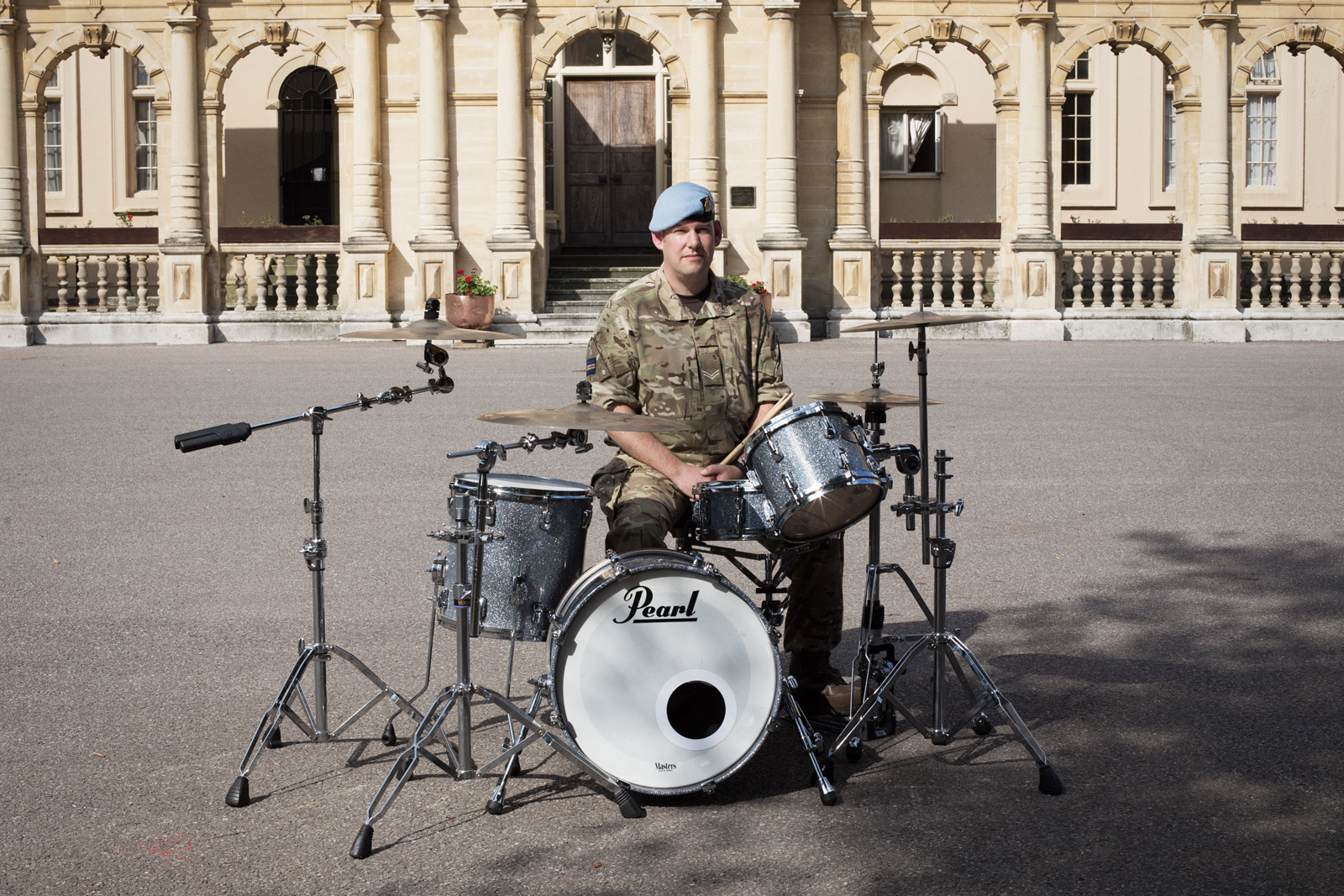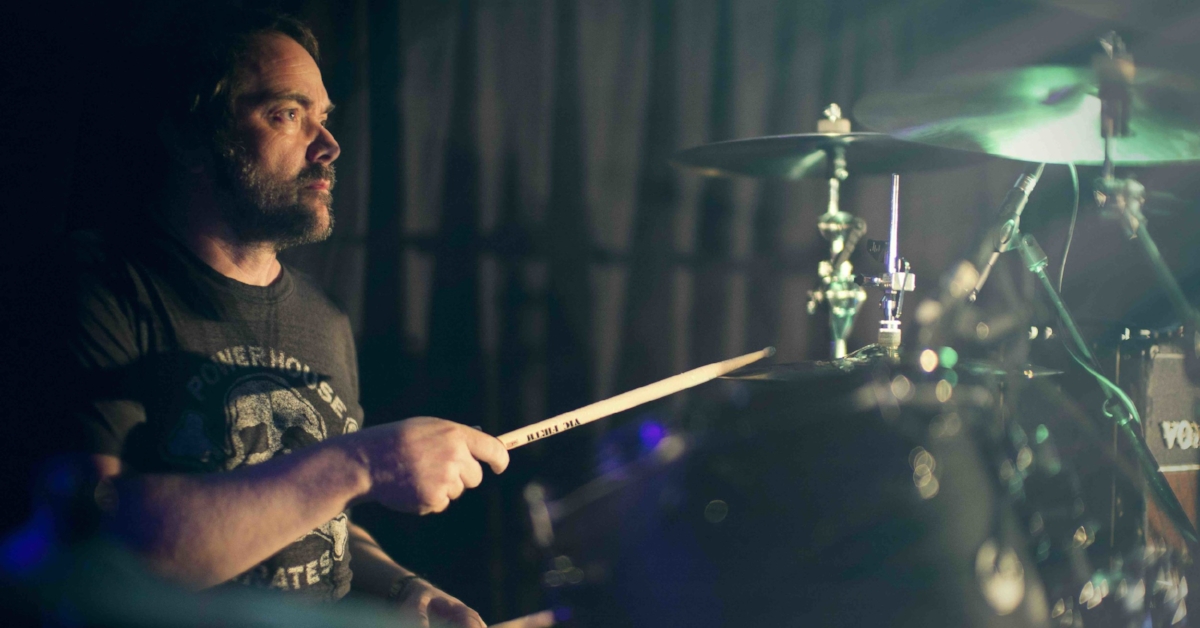A family member recently moved into a house that’s located near a large British Army training centre. It’s a mostly rural area with a small village at its centre. There’s a local butcher and baker. There’s a pub which looks out onto the village green where the local cricket team plays. It’s pretty idyllic, and the Army’s presence, given that the actual centre is shrouded in woodland, is unnoticeable, so much so that when I first visited I was totally unaware there was any Army facilities at all. And so sat in the house one morning, I got quite a shock when I could hear what distinctly sounded like machine gun fire.
As there appeared to be no mention of any sort of viral outbreak or looting of canned food on the news, I had to resort to the rational task of asking a family member exactly why there was escalating live arms fire within close proximity.
“Firing ranges.” A reassuring consultation of a map indeed showed this to be the case. Across a large tract of land about half a mile from the house, the words DANGER AREA are written in red, along with a dashed line denoting its perimeter. It’s here where the majority of new British Army recruits undergo their basic training to become soldiers.
The drum has strong militaristic associations which go back thousands of years. Today, although the use and application of musicians in the Army may have evolved, music and tradition remain a fundamental part of life in the armed forces.
The British Army is now the biggest employer of musicians in Europe and I was keen to understand exactly what this entailed. I set out with a number of somewhat naïve assumptions of what life must be like as an Army musician, largely because I struggled to rationalise how a career as a musician sits alongside a career as a soldier, especially given the UK’s involvement in two extensive military campaigns over the last ten years.
Corporal Matt Kilcoyne, a drummer in the Corps of Army Music, helped clear a few things up.
The Drummer’s Journal: What was it that initially made you want to join the Army?
Corporal Matt Kilcoyne: My father was in the Royal Air Force Music Services, so I was encouraged to play from quite an early age, that’s what spurred me on to join the Army. I’m still here 18 years later.
So you joined specifically to be a musician?
Yes. About 99 percent of Army musicians join with the sole intention of becoming a musician.
Today, what would you say your main purpose as an Army musician is?
Currently, I’m in a contemporary band which is completely different to anything I’ve done in the last 18 years.
In what sense?
All I’m playing at the minute is kit, which is great. But traditionally, I could be called upon to play timpani, xylophone, glockenspiel, and side drum. Traditional military bands are much more diverse. Also, with that you’ll be expected to march with your instrument. Except with the drum set, obviously.
Currently you’re a Corporal, is that correct?
Correct.
Does that give you authority to boss your band mates around?
(Laughs) Well, I’ll just say that the rank system for musicians is the same as it is in the rest of the Army.
What sort events are you playing? For troops?
All sorts. I’ve played in Officer’s messes and Sergeants’ messes. I’ve been out to Afghanistan playing music for the troops on the ground and also played at lots of Afghanistan’s F.O.Bs.
F.O.Bs?
Forward Operating Bases.
Where specifically in Afghanistan were you deployed?
I was deployed to play music for the front line troops at Camp Bastion, and all around Afghanistan.
How do you get around in Afghanistan with a drum kit?
Helicopter. We’d fly out to an F.O.B, play, back on the helicopter then play somewhere else.
Being in Afghanistan, could you visibly see the impact music can have?
Yes, absolutely. When you’re playing for people who are involved with front line operations, for example, you can see it gives them a release for an hour or two. That’s very rewarding. As a soldier, having time to relax and just listen to music is important.
So how did your experience of Afghanistan compare to that of someone in the infantry for example?
I’m only speaking from my own experience here, but my last tour was a lot different to what an infantryman’s tour would be like. Mine lasted three weeks because we were travelling round and playing so much, but bands can be out there for three, four or five months. I went to many more places and camps than usual. An infantryman would go to a main base, then an F.O.B where they can stay for an entire tour. So I got to see more of Afghanistan, though not necessarily on the ground if that makes sense.
Could a musician be deployed as a soldier to a combat zone?
Everyone in the Army is a soldier, first and foremost. But at the moment, I’m deploying as a musician. We regularly have Army musicians who will volunteer to go back to Afghanistan and do a certain job, to be a driver for example, then come back six months later and pick their instrument back up.
And what about your role outside of conflict zones?
Right, our other job is what we refer to as KAPE.
KAPE?
Keeping the Army in the Public Eye. So, for example, we recently played at the Bournemouth Air Show in front of about 3,000 people, which was a really great experience.
What’s the most memorable gig you’ve done?
For me, it’s when we played at the Invictus Games, and I managed to meet Dave Grohl and Taylor Hawkins because The Foo Fighters had also played.
What did you do before you joined the Army?
I played in a pop band doing pubs and clubs and that sort of thing.
How does being an Army musician compare to that?
The main difference is I have a guaranteed wage every month. As a civilian musician, that’s something you can’t always depend on. Plus I get dental care, medical care and a pension.
I read somewhere that the Army is one of the biggest employers of musicians in Europe...
That’s true. I’ve done 18 years so it’s a career for life really. That’s likely why.
So you had to audition initially? How competitive is it?
Yes, it is competitive, especially to get into a contemporary band. But it’s like any other exam or interview, especially nowadays. I remember being nervous, yeah.
And how was your experience of going through Basic Training?
My basic training lasted eight weeks. It’s longer now for new recruits, about 14 weeks I think. It’s certainly a challenge. It’s all about fitness. You don’t touch an instrument; it’s all about becoming a soldier.
The time it takes to prepare someone to be a soldier, compared to preparing to be a musician, seems so short by comparison. Prior to the audition, you’ll have spent years learning an instrument, but you only get eight or 14 weeks to become a soldier...
Well, Basic Training is very intense, but it needs to be. On the flip side, it’s also very rewarding once you’ve been through it and I genuinely mean that. But Basic Training is just the start, you’re constantly learning new things and skills.
How is your career as an Army musician affected by your abilities as a soldier?
Although you are expected to play at a certain standard, it’s true that your career isn’t entirely judged on how well you can play. There are other factors to consider, too.
Such as?
Leadership potential and decision-making ability.
Contemporary bands are something the Army has adopted only recently, right?
Yeah.
Are there songs you can and can’t play?
Well, we still have a rank system within the band, so we have a Bandmaster and a Band Sergeant Major who will have a say on what we do or don’t play. But, as a process, deciding what to play can be as simple as the vocalist saying they want to do a particular piece, or we might be required to play something specific for a certain performance.
And what about the pay?
Yeah, it’s good.
Go on...
Well, if you take an orchestra for example, I can’t see the principal percussionist earning more than £30,000 a year. What I’m earning, with benefits such as housing and medical, it’s considerably higher.
So do you have any time to practise?
Yes, the Royal Military School of Music has specialised teachers who are at the top of their game. So my playing has vastly improved since I joined, without a doubt. I’m still going for lessons at the moment, so the opportunities to learn are always there.
Do you ever get to play original material?
That’s something we are going to do in the future. There are three contemporary bands in the army at the moment. I believe some of them have written some of their own music, and it’s our intention to do the same.
Is there a rivalry between bands?
Er... no, well..., no not really. Erm, yeah. There’s no rivalry. We’re all friends.
Are you sure?
Well... I mean, ok, maybe there’s a bit but it’s all friendly (laughs).

















